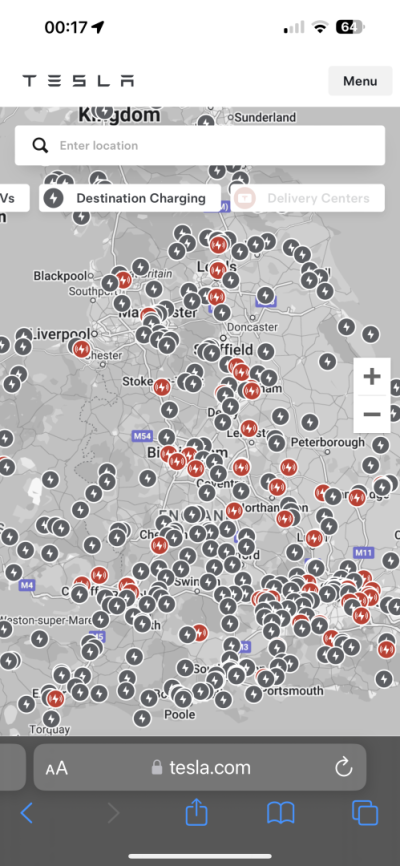ALFAitalia
MB Enthusiast
- Joined
- Feb 19, 2022
- Messages
- 8,721
- Location
- Bognor Regis
- Car
- 2010 Mercedes W212 E Class E350 CDI Sport, 2006 Mercedes W169 A Class A170.
.
Follow along with the video below to see how to install our site as a web app on your home screen.
Note: This feature may not be available in some browsers.
My point is I spent a while in a country that is aligning itself with Chins/Russia and their friends. But seems to have zero interest in the complete bollocks that is 'Net Zero' mantra that will impoverish us all (in the UK) , They just want bread on the table.
Have to admit I agree, about EVs having anything whatsoever to do with, Climate change cobblers, they don't. But they are here, and that's it, like it or loathe it.
But why will they impoverish us all in the UK?
Just bought another EV today.Drove 200 miles to view it (in another EV) - you’d think it would be impossible to do such journeys seeing some of these posts.


Will update when I pick it up nx week, guess what it is?
Looking forward to it. Haven’t you got one of each Tesla by now?Will update when I pick it up nx week, guess what it is?
Looking forward to it. Haven’t you got one of each Tesla by now?
I know a couple people with them, they love them.I know some you will hate them but I can’t stop thinking about buying an ID Buzz.
Don’t worry, certain members will be along to dissect these figures soon.Today I took our FIAT 500e to pick up some groceries. I rarely use it but it’s the ideal car for this trip: 25 mile round trip, destination is in a city centre, and parking in a multistory car park so neither ramps nor spaces aren’t generous.
Most importantly the car park is always very very busy, however EV charging is plentiful, right outside the M&S lift and the charging bays are extra wide, so I’ll usually pop it on charge even if it costs more than charging at home as it’s so convenient.
It’s often said that charging using a public charger is very expensive and especially if you don’t pay a monthly membership or subscription cost, and even more so when using the fastest ultra rapid chargers, so I thought I’d share the facts.
I charged using an ultra rapid 150 kW charger in a public charging station, at the full tariff rate as I do not have a membership or subscription, so this should be as expensive as it gets. Here’s what it cost and calculated cost per mile.
Let’s compare that to an equivalent ICE powered car which I sometimes use on the same journey, a Smart ForFour, it’s 1.0 naturally aspirated, manual and relatively frugal. I’ve used an expected MPG based upon doing the same journey in the past.
- 10.6730 kWh @ £0.48 kWh = £5.12
- Round trip average of 4.4 miles/kWh
- Typical consumption of 4.4 to 6.6 miles/kWh
- £0.48 kWh / 4.4 kWh = £0.109 per mile
So driving an ICE - even with the relatively low cost of 133.9p per litre of unleaded - costs 19.2% more than driving an equivalent EV using a public rapid chargers without a subscription or membership. In reality it costs more as I use VPower in the Smart.
- 4.55 litres @ £1.339 per litre = £6.09 per gallon
- EXPECTED Round trip average of 47 MPG
- Typical consumption of 42 to 58 MPG
- £6.09 / 47 miles = £0.130 per mile
That’s before factoring in the lower service and insurance costs in the FIAT, both of which are around half that of the Smart, and EV parking being free in that particular car park which today would have saved £1.80 per hour.
Some ultra rapid chargers will cost more, as will some petrol stations. However the reality isn’t anything like what some people say.
I charged using an ultra rapid 150 kW charger in a public charging station, at the full tariff rate as I do not have a membership or subscription, so this should be as expensive as it gets.
Some ultra rapid chargers will cost more, as will some petrol stations.
...The difference though is that (as above) the cost of EV charging varies much more than the cost of unleaded or diesel does.
How very true. Which also renders many of the posts in this thread useless.......
The 'average' cost is of no interest to you as an EV driver, what matters is the cost from those particular chargers that you are likely to use.
Indeed. It's easy to accidentally paint a misleading picture if you happen to have access to unusually cheap ultra rapid charging (or indeed very cheap unleaded, if that is possible).
EVs have some strong points but a low 'fuel' cost per mile from public ultra rapid chargers isn't one of them.
It’s not unusually cheap, that’s just the full tariff price at a Tesla Supercharger for another EV, ie not a Tesla. No discounts, no memberships, no subscriptions, full price. You can subscribe for a discounted rate but I don’t.Indeed. It's easy to accidentally paint a misleading picture if you happen to have access to unusually cheap ultra rapid charging (or indeed very cheap unleaded, if that is possible).

Indeed. It's easy to accidentally paint a misleading picture if you happen to have access to unusually cheap ultra rapid charging (or indeed very cheap unleaded, if that is possible).
EVs have some strong points but a low 'fuel' cost per mile from public ultra rapid chargers isn't one of them.
We use essential cookies to make this site work, and optional cookies to enhance your experience.
